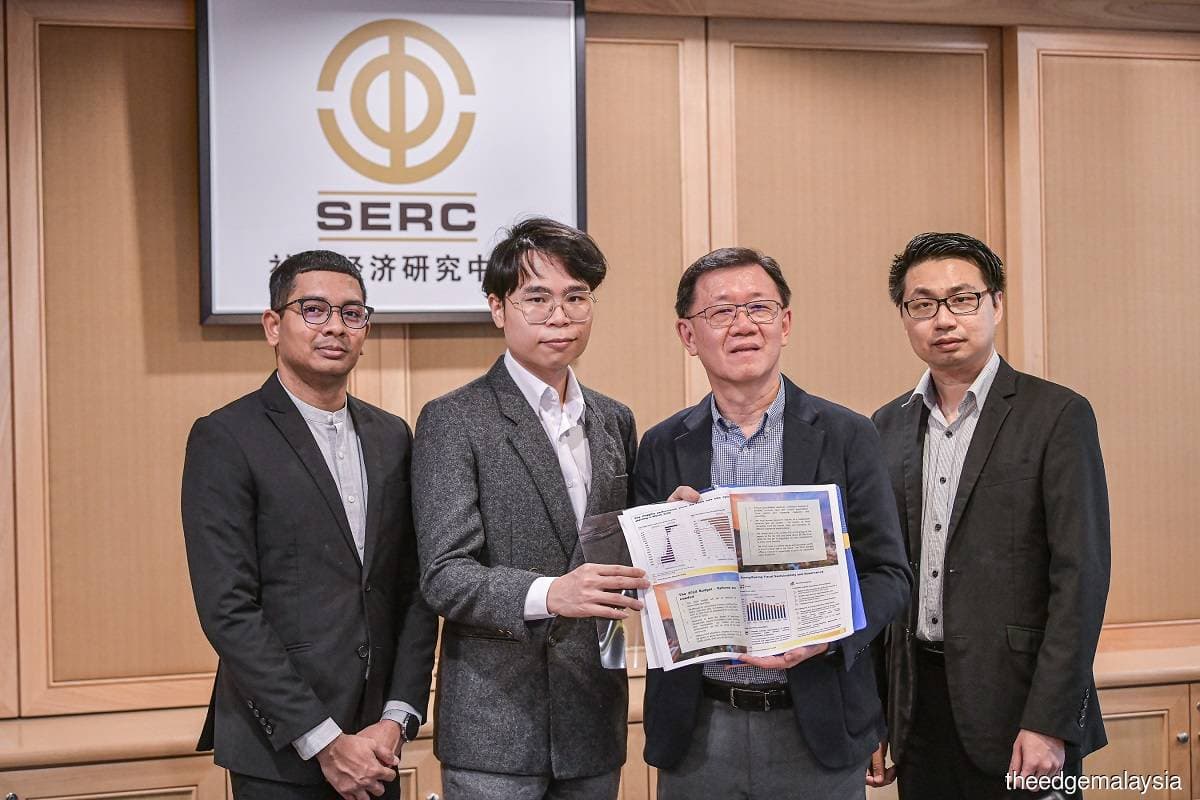
KUALA LUMPUR (Oct 2): Budget 2024, which is slated to be tabled in Parliament next week, will be a prime opportunity for the government to undertake fiscal consolidation reforms to avoid running off a fiscal cliff.
With the growing burden on Putrajaya’s coffers, Socio-Economic Research Centre (SERC) executive director Lee Heng Guie said Budget 2024 serves as a window of opportunity for the government to unveil a measured pace of fiscal reform, so that the following years running up towards the 16th general election, which is expected to take place at the end of 2027, can be utilised to quell discontent from voters over unpopular policy moves.
“Prime Minister Datuk Seri Anwar Ibrahim mentioned yesterday (Sunday) that we have RM1.5 trillion in debt. If the government continues to have a deficit, debt keeps growing, and one day you can’t service your debt, eventually the rating agency will downgrade your credit rating and all your costs will increase,” he said.
Lee said it is crucial for the government to come to “political sense and economic sanity” to avoid a fiscal cliff, namely conflict over constant increases in the debt ceiling due to an unsustainable budget deficit, as seen in the US currently.
In view of this, Lee foresees that Budget 2024 will focus more on operating expenditure, and will be characterised by the introduction of “necessary but unpopular” measures, including targeted petrol subsidies, as well as scheduled implementations of the previously announced capital gains tax (CGT) on non-listed shares and luxury goods tax.
Touching on targeted petrol subsidies, he said this should be undertaken in stages sequenced at a measured pace based on the principles of needs and income, accompanied by cash aid for affected households.
He urges the government to ensure transparent and extensive communication over the policy, and suggests for its mechanism to be pre-announced three to six months prior to implementation.
Meanwhile, Lee said that the CGT on non-listed shares as well as the luxury goods tax are to be finalised in Budget 2024 towards broadening the government’s revenue base.
However, he shared his concern that the introduction of the CGT may open the door for it to be carried over to cover public listed shares as well in the future, while the luxury goods tax may adversely affect the domestic luxury goods market.
Lee also noted that a reform of the civil service must be done to improve the quality and value of public services-based performance and productivity-linked salary systems.
Towards this, he shared his disagreement with the government’s previously announced plan to detail a civil servant salary raise in Budget 2024, as he said things of this nature should only be done until the ongoing comprehensive study of salary and retirement schemes is completed in 2024.
'GST should be reintroduced, but hopes are low'
Another of Lee’s hopes for Budget 2024 is a 12-month pre-announced reintroduction of the goods and services tax (GST) at a lower introductory rate of 4% to 5% — compared with 2015’s 6% — towards addressing the nation’s unsustainable tax base.
“Currently, direct tax to revenue stands at 52%, which is very high, while for indirect taxes including consumption taxes and all this, it's only about 18%. The government has to look into shifting its reliance on direct taxes to indirect taxes.
“If you can bite the bullet and have a strong political will, why don’t you consider the GST?” he asked.
Based on his dialogues with the government, Lee shared his view that the government is concerned about the GST potentially being regressive and impacting low-income households.
“If it's regressive, then you exempt most of the necessities, and give a bit more mitigation through cash handouts or vouchers. This was what I told Economy Minister Mohd Rafizi Ramli,” he said.
Meanwhile, he suggested that another roadblock in the reintroduction of the GST may be linked to the policy’s political history.
He underlined that it was first implemented in the Barisan Nasional era in 2015 under Datuk Seri Najib Razak’s administration, and was then opposed and abolished by the Pakatan Harapan (PH) government under Tun Dr Mahathir Mohamad in 2018.
“Now if they come back and reintroduce it, it could be a slap on their (PH’s) face. But the government has to think of what is good for the country,” he noted.
